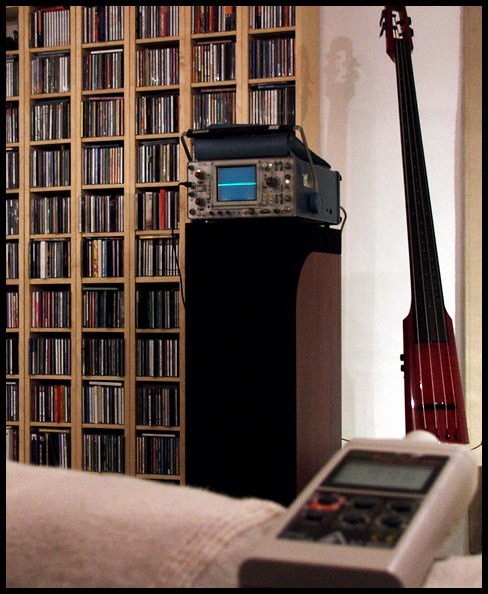You're right, no one is gonna change.
I know but who cares, right? Is it affecting my life?
You're right, no one is gonna change.
If I'm considering a purchase, I'll try to find independent measurements of the device done by someone I have reasonable trust in (i.e. not Stereophile). Failing that, I'll look for measurements of another device from the same manufacturer. This can tell me whether published specs by that manufacturer are accurate. It's also possible to make a reasonable estimate of parameters not in the official specs based on the position of the devices in the manufacturer's product line.There is an implicit assumption that manufacturers' stated specifications are accurate. Often, they are not. Some exaggerate; others understate. I have no way of measuring, so I have learnt to use and trust my ears.
Sounds sensible but surely listening to the product first is more important. You can think it’s great, then look at the measurements afterwards and realise they are terrible which will put you into all sorts of neurotic spasms.If I'm considering a purchase, I'll try to find independent measurements of the device done by someone I have reasonable trust in (i.e. not Stereophile). Failing that, I'll look for measurements of another device from the same manufacturer. This can tell me whether published specs by that manufacturer are accurate. It's also possible to make a reasonable estimate of parameters not in the official specs based on the position of the devices in the manufacturer's product line.
Some interesting thoughts here.
When it comes to hi-fi I am a pragmatist. I only buy kit from established brands that can be serviced as required or sold on when it comes to upgrading. I tend to buy only on the basis of a home demo & generally keep things a long time.
Why? If competent measurements show no anomalies exceeding known audibility thresholds, I can be confident it will sound just fine.Sounds sensible but surely listening to the product first is more important.
There's 'just fine' and then 'just right'.Why? If competent measurements show no anomalies exceeding known audibility thresholds, I can be confident it will sound just fine.
If I want some colouration, there's DSP for that.There's 'just fine' and then 'just right'.
I think this is where you get some people wanting to chase "just right" and enjoying the journey as the key part of the hobby and some who espouse "just fine" and enjoying the destination as the key part of the hobby.There's 'just fine' and then 'just right'.
I'm fortunate in that not only have I made my own cables for more years than I like to remember, and heard how different they can sound, I more recently have been able to try new (and expensive) cables direct form manufacturers, sometimes pre-production designs. I now have some rather expensive cables, of all types, which I chose solely on subjective grounds. Mostly they have cost me no cash at all.I'm pretty pragmatic and I reckon most old timers here are the same. Cables, something that is well made and works, so long as it isn't expensive or deliberately a tone control I'd be ok; would never 'audition'. Amps primarily on the numbers and build wouldn't bother listening. Turntable I'd listen but then I'd buy the new Technics blind in a heartbeat. Speakers I need to listen to in my room and it will be a very subjective decision.
Ps also there are a few here who I would just trust and go with their suggestion. Other than speakers in my room.
I look at it the other way round. Looking at measurements (if you can assess their reliability and interpret them properly) can tell you when a manufacturer has insufficient grasp of the technology according to today's state of the art [1]; and whether there is likely to be any incompatibility with other parts of a system.Sounds sensible but surely listening to the product first is more important. You can think it’s great, then look at the measurements afterwards and realise they are terrible which will put you into all sorts of neurotic spasms.
Fair enough.I look at it the other way round. Looking at measurements (if you can assess their reliability and interpret them properly) can tell you when a manufacturer has insufficient grasp of the technology according to today's state of the art [1]; and whether there is likely to be any incompatibility with other parts of a system.
This approach does not assume good measurements equates to good sound. It is to do with eliminating kit from a shortlist when it is unsuitable, before going and trying it out. So you avoid those neurotic spasms. This way may not suit those who enjoy a chase for the best kit according to their criteria but it does streamline the search if that's what suits you.
[1] In an interview about his loudspeaker measurements John Atkinson used a phrase similar to "someone who has turned his hobby into a business".

Years ago I realised I could just plug the scope into the speakers and leave it to do the beastly job of receiving the signal while I can proceed to ignore hifi, and hifi arguments.
That way, everything is satisfactory.

